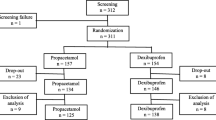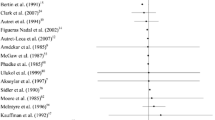Abstract
Objective: The aim of this study was to assess and compare the efficacy and tolerability of paracetamol, ibuprofen and nimesulide in children with upper respiratory tract infections (URTIs).
Methods: Ninety children with acute URTIs and fever were enrolled to the study. The patients were allocated to three groups. The first group was treated with paracetamol 10 mg/kg thrice daily; the second group with ibuprofen 10 mg/kg thrice daily; and the third group received nimesulide 2.5 mg/kg twice daily for 5 days.
Results: The anti-pyretic activity of nimesulide was greater and more rapid than either paracetamol or ibuprofen. The number of patients with normal temperature was significantly greater in the first 2 days for the nimesulide group. The improvement in cough for the paracetamol group was better than the others.
Conclusion: The results of this study demonstrated that the anti-pyretic effectiveness of nimesulide is better than paracetamol and ibuprofen in febrile children with URTIs. However, new studies in larger paediatric populations are required to explore the anti-inflammatory effect of nimesulide.
Similar content being viewed by others
Author information
Authors and Affiliations
Additional information
Received: 20 April 1999 / Accepted in revised form: 13 August 1999
Rights and permissions
About this article
Cite this article
Ulukol, B., Köksal, Y. & Cin, S. Assessment of the efficacy and safety of paracetamol, ibuprofen and nimesulide in children with upper respiratory tract infections. E J Clin Pharmacol 55, 615–618 (1999). https://doi.org/10.1007/s002280050681
Issue Date:
DOI: https://doi.org/10.1007/s002280050681




